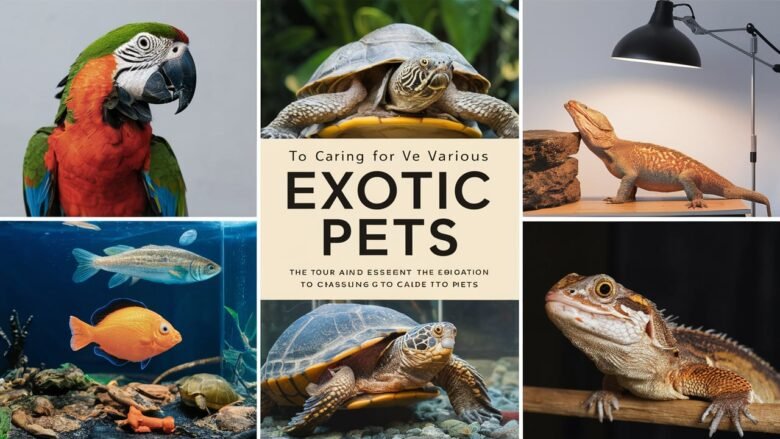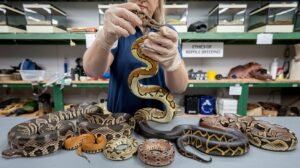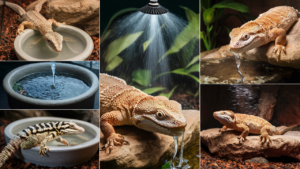Ensuring the health and happiness of our animal companions requires knowledge and dedication. This article delves into the care routines for reptiles, the maintenance of fish tanks, the importance of social interaction for parrots, and proper feeding habits for turtles. Each section focuses on techniques and insights crucial for responsible pet ownership.
Understanding Reptile Care Routines
Understanding Reptile Care Routines: To ensure reptile well-being, establish specific temperature gradients within enclosures, provide appropriate hiding spots, and format feeding schedules according to species. Regular health checks, including monitoring for parasites or abnormalities, are essential.
Fish Tank Maintenance Tips for Healthy Aquariums: Prioritize water quality by frequently testing pH, ammonia, nitrite, and nitrate levels. Implement a robust filtration system and perform regular water changes to manage algae growth. Choose compatible fish species and cycle the aquarium before introducing them.
Fish Tank Maintenance Tips for Healthy Aquariums
Maintaining a healthy aquarium involves regular testing of water quality, ensuring pH and ammonia levels are stable. Invest in a reliable filtration system and perform routine water changes to manage toxins effectively.
To combat algae, keep your tank illuminated for appropriate durations and consider using algae-eating species. A weekly cleaning schedule, including substrate vacuuming and equipment check-ups, promotes a pristine environment for your fish.
When selecting fish species, research compatibility and tank requirements; beginner-friendly options include guppies and neon tetras. Remember to cycle your aquarium—this process establishes beneficial bacteria, enhancing water quality before introducing fish.
Enhancing Parrot Social Interaction
Social interaction is crucial for parrots, as they are highly social creatures. Engaging with them through *training techniques*, *playtime*, and providing companionship fosters emotional well-being. Without interaction, parrots can develop behavioral issues such as feather plucking and excessive vocalization. To mitigate these problems, owners should establish routine social activities and incorporate varied stimulation, ensuring their parrot feels secure, engaged, and affectionate. Activities like **interactive toys** and **outdoor time** can enhance their quality of life, fostering a happier, healthier pet.
Nutritional Needs and Feeding Habits of Turtles
Understanding the nutritional needs of turtles is essential for their health. Different species require a balanced diet of greens, proteins, and occasional fruits. Feed hatchlings daily, while adults benefit from every other day routines. Observe for signs of hunger by noting their active behavior and eagerness during feeding times.
Integrating Care Routines for Diverse Pets
Creating a comprehensive care routine for reptiles, fish, parrots, and turtles requires effective scheduling that respects their unique needs. Allocate specific time blocks each day for feeding routines, ensuring turtles receive balanced nutrition while maintaining their individual appetites.
Combine regular tank maintenance for fish with inspection of water parameters multiple times weekly; this helps ensure their environment stays safe. Integrate parrot interaction by designating quality social time during the day, ensuring they receive adequate attention for mental stimulation and emotional health.
Rotate attention to reptiles while practicing regular habitat checks, maintaining their enclosure cleanliness, and recognizing any behavioral changes indicating stress or health concerns. By balancing these diverse needs, you can promote the well-being of all your pets, leading to a harmonious household filled with happy, healthy animals.
Conclusions
In conclusion, effective care routines for reptiles, careful maintenance of fish tanks, engaging social interactions for parrots, and appropriate feeding for turtles are vital elements of responsible pet ownership. By adhering to these guidelines, pet owners can ensure their companions thrive in a healthy and nurturing environment.



